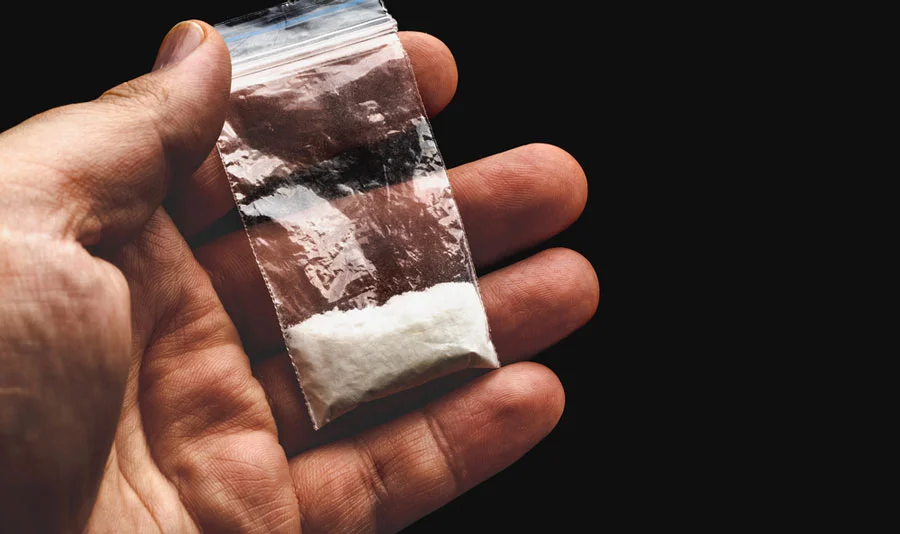Overcome Fentanyl Withdrawal Symptoms in Safety
Fentanyl detox is a critical step for anyone struggling with a fentanyl addiction. This dangerous opioid has become the primary driver of an escalating opioid epidemic that continues to plague the country. The drug abuse statistics are staggering; according to the Centers For Disease Control, there are 150 overdose deaths every day related to synthetic opioids like fentanyl.
Fentanyl substance use causes immense physical, psychological, and interpersonal consequences, making a successful fentanyl detox invaluable to an individual’s long-term health and well-being. The chances of recovery and returning to a happy, healthy life are dependent upon proper detox, making it a necessary first step on the long road to recovery.
Keep reading to learn more about fentanyl abuse, medically supervised detox from fentanyl, and what Catalina Behavioral Health in Tucson can do for you.
What is Fentanyl?

Fentanyl is a highly addictive and potent synthetic opioid that is used in medical settings as an analgesic to treat severe pain and chronic pain, often in the form of a transdermal patch or nasal spray.
Fentanyl binds to the body’s opioid receptors and is approximately 50 to 100 times stronger than morphine and has both fast-acting and long-lasting effects on the body. Outside of medical settings, fentanyl is abused for its intense euphoria.
Fentanyl Addiction
Fentanyl is a synthetic opioid prescription painkiller that has been used for decades in medical settings. In recent years, however, its use has become increasingly widespread due to the proliferation of illegal fentanyl on the streets.
Unfortunately, this has led to a dramatic rise in fentanyl addiction and overdose deaths. If you or someone you know is struggling with an opioid use disorder or another substance abuse disorder, it’s important to understand the following symptoms so that you can get help as soon as possible.
Immediate Help For Fentanyl – Get Options Now!
What are the Signs of Fentanyl Addiction?
Fentanyl addiction has a number of tell-tale signs which can be divided into physical, psychological, and behavioral categories. Take note of the signs and symptoms of fentanyl withdrawal and addiction:
Physical Addiction Symptoms
- Changes in appetite or sleep patterns
- Dilated pupils
- Increased tolerance
- Chills
- Increased sensitivity to pain
- Nausea or vomiting
- Diarrhea
- Weight loss
- Constipation
- High blood pressure
- Slowed breathing
Psychological Addiction Symptoms
- Irritability
- Depression
- Paranoia
- Confusion
- Mood swings
- Impaired concentration
Many of the above-listed symptoms are also fentanyl withdrawal symptoms.
Behavioral Addiction Symptoms
- Doctor shopping for more prescription painkillers or seeking out illegal sources for more fentanyl/other opioids and other synthetic opioids (heroin/morphine/prescription medications)
- Engagement in risky behavior such as driving under the influence
- Taking higher doses than prescribed (leading to increased tolerance and potentially severe opioid overdose)
- Neglecting responsibilities at work or home
- Isolating from friends and family members
- Engaging in criminal activity to obtain drugs
Types of Detox From Fentanyl

When someone dealing with drug abuse decides to get help, medically assisted fentanyl withdrawal can help them take the first step toward recovery.
Medically Assisted Fentanyl Detox
Medically assisted fentanyl withdrawal is when there is medical supervision while detoxing from fentanyl drug use by providing medication that helps reduce and manage the symptoms of withdrawal. This type of detox treatment has been proven effective in helping individuals achieve successful long-term recovery in the safest way possible.
The Benefits of A Medical Detox Facility
One of the major benefits of fentanyl detoxification under medical supervision is that it can help reduce or even eliminate the extremely uncomfortable withdrawal symptoms that come along with being physically dependent on an opioid like heroin or fentanyl. It can also help reduce cravings for the drug and other substances, all while allowing individuals to remain comfortable during their fentanyl detox process.
24 Hour Rehab Helpline – Reach Out Now!
Fentanyl Withdrawal Timeline & Symptoms
The severity and duration of your fentanyl withdrawal symptoms depend on various factors, including how long the drug abuse has been going on, how much fentanyl you have been using, whether or not you are using other drugs at the same time, whether you were using the medications in pill prescription forms or intravenously, and more.
Generally speaking, however, most people will begin to experience opioid withdrawal symptoms within 12 hours of their last dose. These early symptoms usually include anxiety, intense cravings for the drug, insomnia, runny nose, sweating, and dilated pupils.
The intensity of these early severe withdrawal symptoms typically peaks between 24-48 hours after your last dose. This peak period is when many people report stronger symptoms. These include nausea, diarrhea, vomiting, abdominal cramps/pain, muscle aches/pains (especially in the back), tremors/twitching (especially in the hands), hot/cold flashes as well as increased heart rate and blood pressure.
Once this peak period passes (usually after 48-72 hours), most people report feeling more stable but still uncomfortable with ongoing cravings for fentanyl as well as fatigue and depression. In some cases, these feelings after fentanyl detox can persist for a few weeks or even months after quitting fentanyl use and other opioids; this is known as post-acute withdrawal syndrome (PAWS).
Post-Detox Fentanyl Addiction Treatment

Detoxing from fentanyl can be a challenging process. But once detox is complete, it’s important to have a strong aftercare plan in place that addresses the risk of relapse and overdose. Aftercare plans provide those in recovery with the necessary tools to maintain sobriety and prevent relapse on opioids.
Keep reading to learn more about the addiction treatment choices available to those who have completed a fentanyl detox program.
Inpatient Rehab Programs
Inpatient rehab programs are one of the main components of an effective aftercare plan. These programs involve living in a residential facility where individuals can receive 24/7 support and guidance on their journey toward sobriety.
During an inpatient rehab program, those recovering from drug addiction will receive individual therapy sessions, group therapy, 12-step meetings, medications as needed, and other therapeutic activities that can help them understand the underlying causes of their addiction so they can avoid the risk of relapse in the future.
Outpatient Programs
Outpatient programs are another form of aftercare treatment for those recovering from fentanyl addiction. Outpatient programs are generally less intensive than inpatient rehab programs, but still provide individuals with the necessary tools to remain sober and live healthy lifestyles.
Outpatient treatment facilities typically provide counseling sessions one-on-one with a therapist or counselor and participation in support groups such as 12-step meetings or SMART Recovery meetings.
Medication Assisted Therapy (MAT)
Medication-assisted treatment (MAT) is another treatment option that curbs withdrawal symptoms for those recovering from opioid addiction, including fentanyl addiction.
MAT treatment involves taking medications such as buprenorphine or naltrexone to provide additional support during recovery while also helping reduce the severity of cravings and withdrawal symptoms. MAT is often used as part of an overall relapse prevention plan for individuals who need additional support when transitioning from opioid detox back into their everyday lives.
We Offer a Safe and Effective Program

If you’re considering detox as one of the options for your journey to sobriety, you need to be sure that the program you choose is safe and effective. At Catalina Behavioral Health, we offer an evidence-based approach that has been proven to work for people who are looking to break free from addiction and achieve lasting recovery. Here’s how we can help.
Safe and Secure Environment
Our team understands the importance of creating a safe and secure atmosphere where individuals can feel comfortable during their stay. We have staff on-site 24/7 to provide assistance, answer questions, and ensure that everyone feels supported throughout the withdrawal process. We also have security cameras around the facility for added safety, and to ensure all our clients feel safe and comfortable addressing issues during their time at Catalina.
Personalized Support
We understand that every individual’s recovery journey is unique, so we strive to customize our care plans to meet each person’s specific needs. Our team includes medical professionals, psychiatrists, psychologists, therapists, nurses, and other care providers who will work together to create a plan tailored specifically for you.
Licensed Treatment for Fentanyl – Call Now!
Clinical Care Services for Fentanyl Detox
At our facility, we provide a wide range of clinical care services designed to meet your specific needs. These include medication management services, psychiatric assessments, medical monitoring, therapeutic interventions such as individual counseling sessions, group therapy services, life skills training, nutrition guidance, holistic healing activities like yoga or meditation classes, recreational activities, family counseling sessions, aftercare planning, and more.
If you need help, contact Catalina Behavioral Health today so we can explore your detox and treatment options. We will provide you with quality care and comfort during your treatment.
All calls to our facility are confidential, so please reach out





